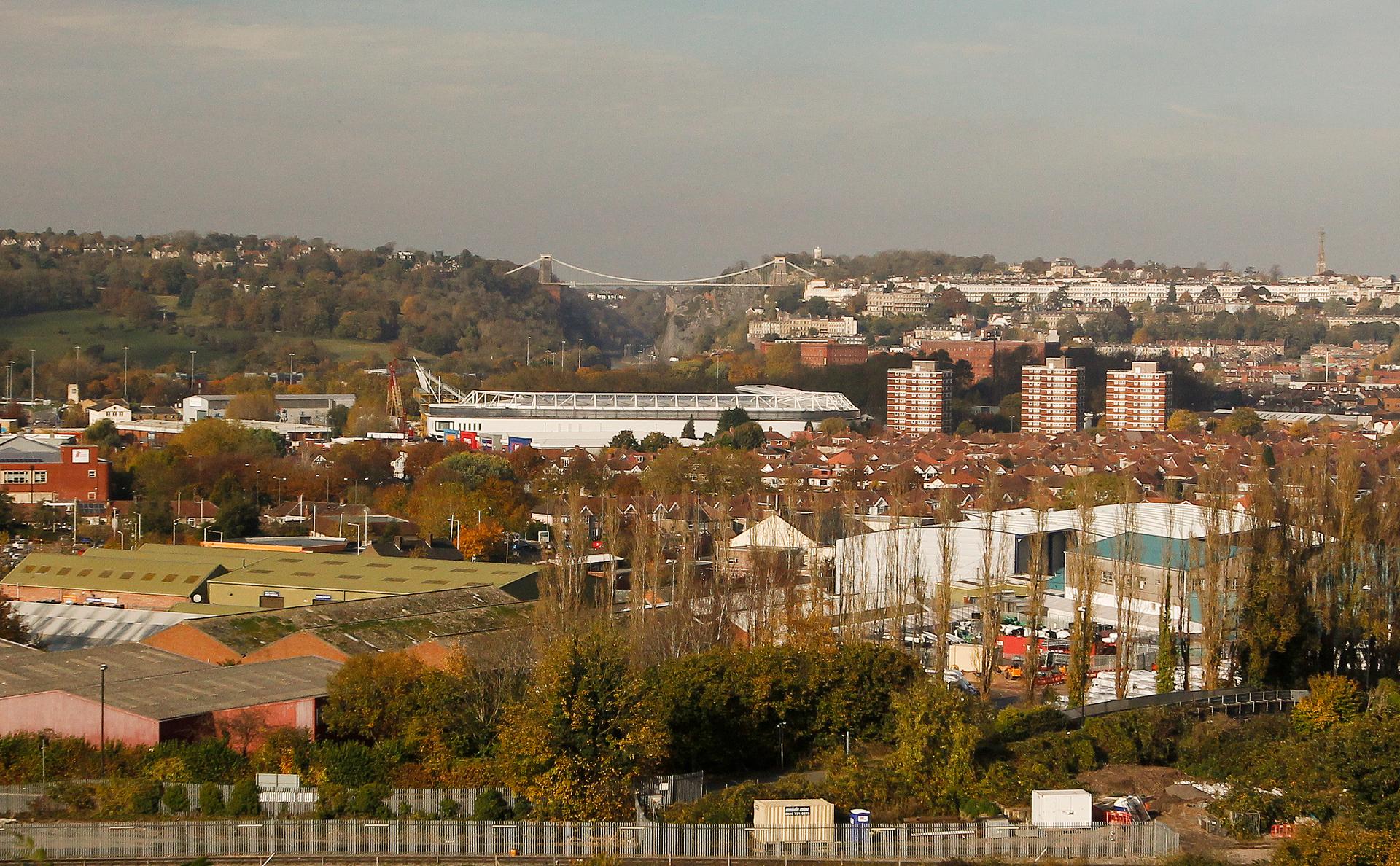What’s behind ‘vinegar-gate’ in Bristol, UK?
A general view of Ashton Gate Stadium and Clifton Suspension Bridge in Bristol, UK.
For Harriet Williams, the moment came one day when she was at a park playing with her 18-month-old son.
"And a guy turns up with a backpack and starts spraying the weeds at the base of the railings," she recalls, "with no warning, very close to where we were sitting."
As soon as Williams got home, she began researching. She found out that the chemical in the spray was likely something called glyphosate — a widely used herbicide. It kills weeds and other unwanted plants.
But glyphosate is at the center of a hot debate in Europe at the moment. Last year, an agency of the World Health Organization concluded that glyphosate is "probably" carcinogenic, although it's still uncertain how much of a risk it may pose to humans.
Williams was terrified to learn that the potentially dangerous chemical was used so widely and without prior warning to residents. So she and a group of other Bristol residents started a campaign called Pesticide Safe Bristol Alliance. They asked the city of Bristol to come up with other, safer methods to get rid of weeds in their town.
"Quite frankly I just don't want my children exposed to a potential carcinogen," Williams says.
After some back and forth, the officials agreed to try out other methods. The one they came up with was vinegar.
Williams points out there are various other methods that cities across the Europe use to get rid of weeds.
"Hundreds of other European cities using alternatives to harmful pesticides to control their weeds," she says. "There were many other ways that you can kill a weed. You can steam the thing, you can boil it from inside with steam or hot water, you can smother it with foam blanket or you can scrape it up with mechanical means."
So far the city has only tried vinegar, which has gotten a negative response from residents. This week headlines appeared in British papers declaring a strong waft of vinegar emanating from Bristol.
Williams says her phone has been ringing off the hook since the reports came out. She adds that she doesn't live in the area where the trials are taking place, but in general she claims the headlines are not accurate.
"Yes, when the vinegar is first sprayed on the weed, there's definitely a strong smell of vinegar, but reports that the whole city has been blanketed in a fog of the thing are a little exaggerated," she explains.
Plus, she's not the only one who thinks the choice between a pungent smell and exposure to harmful chemicals should be pretty easy.
"The story has generated lots of social media commentary and most people have been saying, 'I can put up with the smell of vinegar if it means we stop using glyphosate, which might be giving me cancer,'" she says. "So bad smell versus cancer, I know which one I'd take."
As for how effective vinegar has been, Williams says the weeds have shriveled but she is not sure if they will completely die out. "It's kind of a back garden, home solution," she says.
Bristol will continue the vinegar trial for a year. There will be another round of spraying besides the one currently in progress. Then the city will decide whether it goes back to glyphosate, continues with vinegar, or comes up with another method.
Williams is hoping for "a more sensible alternative."
CORRECTION: An earlier version of this story incorrectly reported that the agency of the World Health Organization had concluded that "glyphosate is carcinogenic." The agency, known as the International Agency for Research on Cancer (IARC), found that the herbicide is "probably carcinogenic."
Every day, reporters and producers at The World are hard at work bringing you human-centered news from across the globe. But we can’t do it without you. We need your support to ensure we can continue this work for another year.
Make a gift today, and you’ll help us unlock a matching gift of $67,000!
